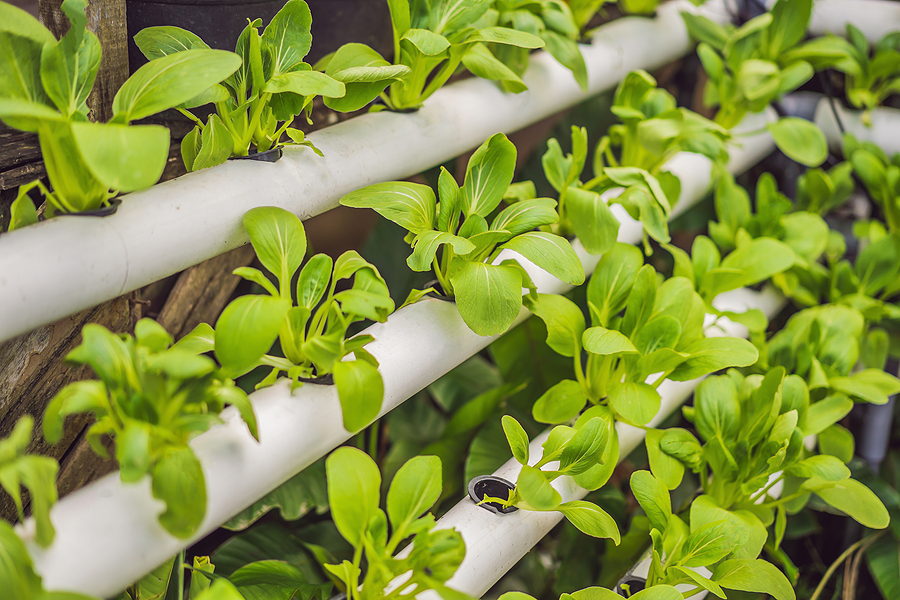By CJ Pakeltis, Account Manager, RizePoint
Food industry executives are struggling with a variety of major challenges around America’s food supply, including:
- Our planet’s population is growing faster than our ability to feed it.
- Ongoing supply chain disruptions mean that many foods are difficult to get, delayed, and/or very expensive.
- Food waste is a huge, expensive problem, and when fresh foods travel far distances to their final destinations, they often rot on trucks.
- Underserved, urban communities are experiencing food deserts, where fresh food isn’t accessible or affordable.
- Outdoor farming comes with many risks, from weather conditions to pests, that can decrease or destroy crops. Additionally, climate change is negatively impacting crop yields.
- Traditional farming methods aren’t always environmentally friendly, with harmful pesticides, high emissions from truck transport, water wastage, etc.
Vertical farming may be the solution to all these problems. Vertical farming is an agricultural process where crops are grown vertically, in controlled indoor environments (such as warehouses) rather than traditional, horizontal rows outdoors.
Vertical farming allows us to grow and deliver crops more efficiently, reliably, affordably, widely, and sustainably. Other significant benefits include:
- A well-controlled environment. Since vertical farms grow produce indoors, it’s easy to control (and adjust) elements like light, temperature, humidity, and water conditions. There are also no concerns about damaging weather or pests. Growing vertically uses space more efficiently, providing a higher crop yield per square foot.
- More environmentally friendly. The U.S. uses more than one billion pounds of harmful pesticides annually in traditional farming, but many vertical farms grow pesticide-free produce in a controlled, protected environment. Vertical farms also drastically reduce water usage, using up to 98% less water than traditional farms. Growing crops closer to their final destinations also reduces transportation, fuel consumption, and emissions.
- More reliability. Vertical farms can be planted anywhere, meaning local businesses (grocery stores, restaurants, food banks, etc.) can have convenient, nearby, year-round access to fresh produce. This means less dependence on disrupted supply chains for more reliable, affordable local food.
- Improved quality control. A fully traceable fresh food supply chain that delivers high-quality, pesticide-free produce straight to local grocery stores and restaurants sounds like a dream, doesn’t it? As another huge plus, this farming model drastically reduces foodborne illness and contamination vulnerabilities. Businesses (and consumers) know where their produce came from and can better track quality protocols vs. produce that must be traced through every step of a complex supply chain. Growing foods near their final destinations means less time for produce to sit and rot on trucks, which will reduce food contamination, spoilage, and wastage.
- Greater access. Vertical farms can be located anywhere – including in (or near) underserved, urban areas. This is an effective, affordable way to bring nutritious produce to communities that currently don’t have access to fresh foods.
- More flexibility. Vertical farms offer much more flexibility around location. Since weather conditions and temperature are well-controlled in indoor environments, vertical farms can yield year-round harvests in any geography. Additionally, since vertical farms don’t necessarily need dirt, there’s more flexibility in farming method, as plants can grow hydroponically, aeroponically, or even aquaponically.
- Less global dependency on food. Other countries have different regulations around how food is grown. Their pesticides – as well as products they use to ripen or preserve produce – may not meet strict US protocols. Additionally, international conflicts – like what’s happening in the Ukraine – can be disruptive to the supply chain. In fact, Ukraine missed an entire growing season due to the current conflict.
Vertical farming is certainly on the rise, as more businesses realize the benefits of this approach. For instance, commercial farming company Square Roots can produce millions of packages of plants, like lettuce and herbs, annually. Walmart invested in vertical farm company Plenty. Multiple grocery brands are investing in vertical farms – in some cases, on the same properties as their supermarkets. Freight Farms has evolved from fundraising via a Kickstarter campaign to growing and supplying produce for Google in the span of 10 years.
Expect to see more innovations around vertical farming in the coming years. For instance, the Farmhand app allows farmers to monitor data and remotely adjust their vertical garden’s temperature, lighting, and water levels from their phones. The app even includes camera feeds so they can watch their produce grow. If something goes wrong, the app will send a notification. More tech developments – including AI – will elevate vertical farming even more.
Indoor vertical farming, an important advancement, is the Next Big Thing in agriculture. Some have called it the “next frontier of farming,” as it allows farmers to produce more crops in less space, needs fewer resources, is more environmentally friendly with less dependence on supply chains, can be set up anywhere, decreases waste, alleviates food deserts, and boosts food quality. Vertical farms are providing fresh, safe, affordable, sustainable, and consistent supplies of food to our local communities. This should be a model that we expand – and rely on – moving forward.
